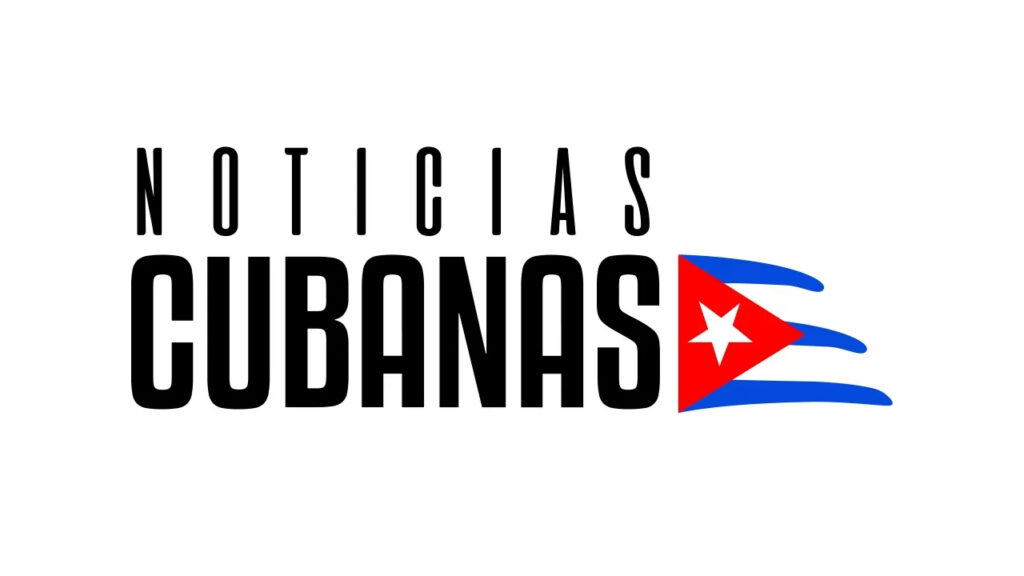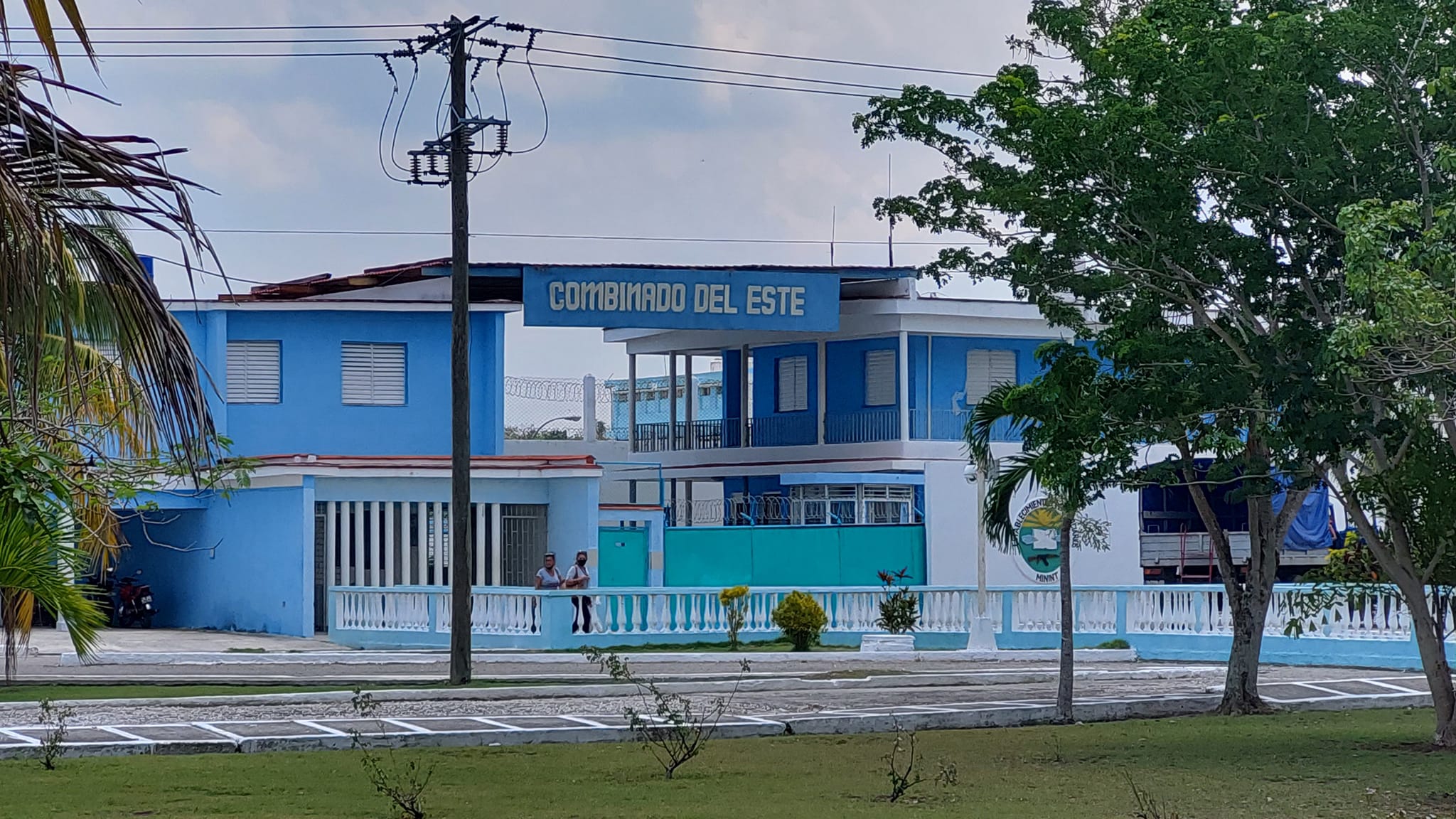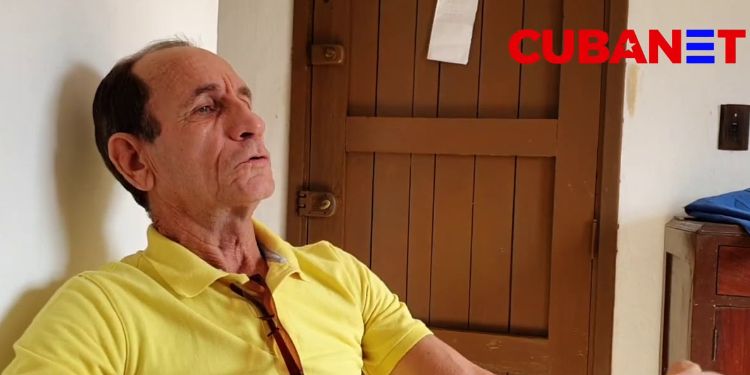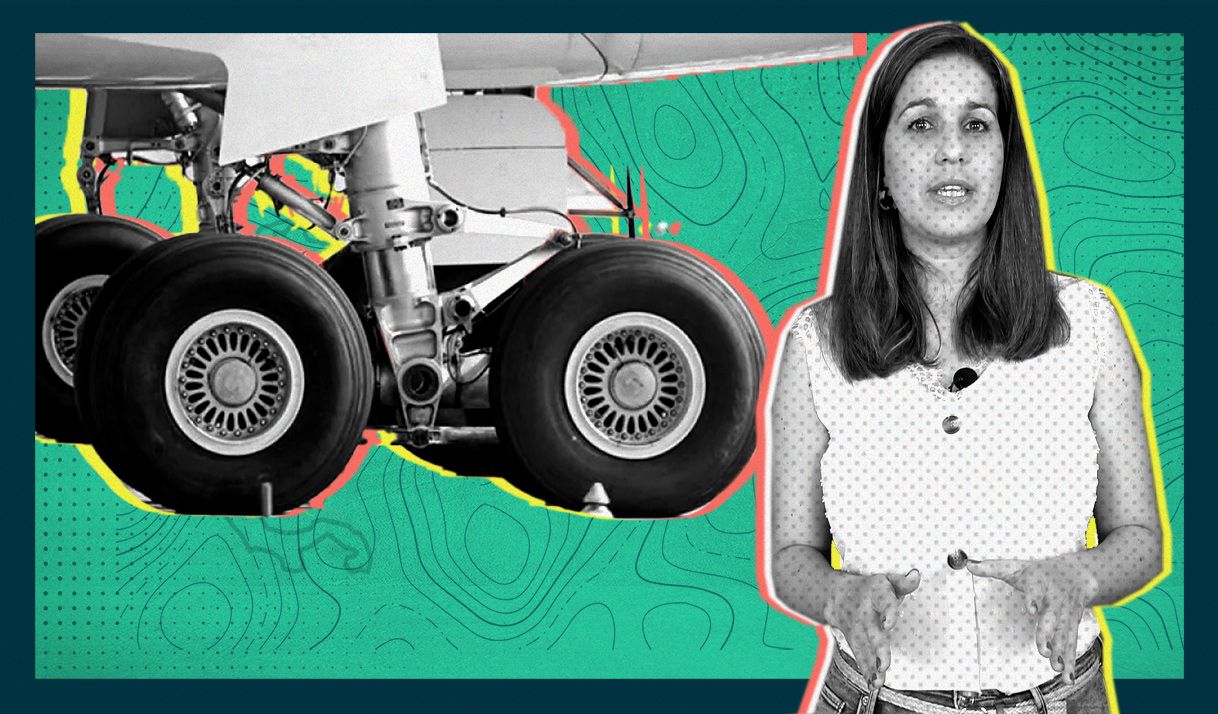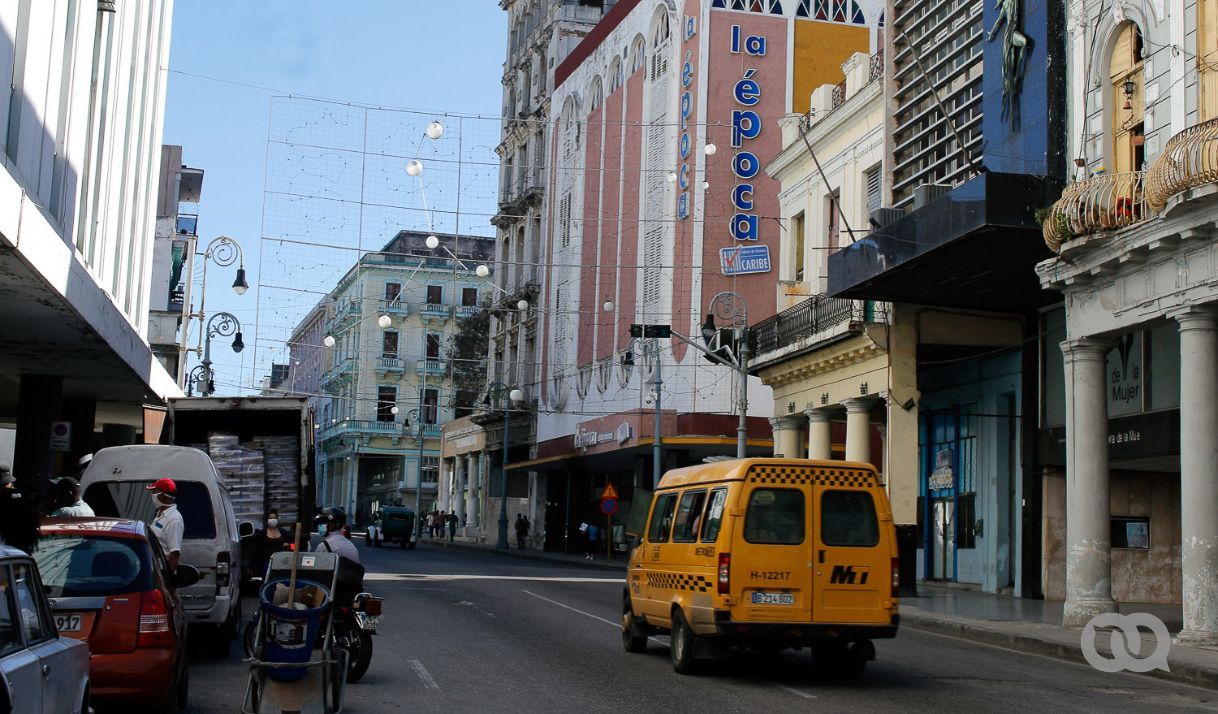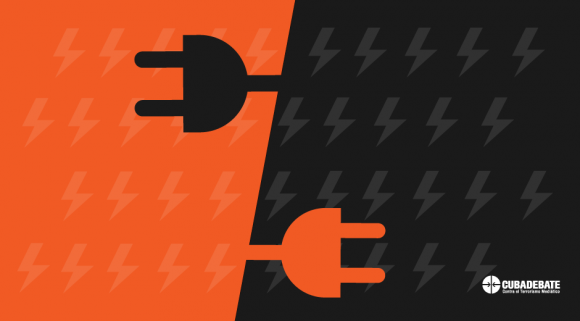HAVANA, Cuba. – Civil engineer Jesús González worked for 622 Cuban pesos a month (equivalent to US$ 25 at the official exchange rate) plus an additional “salary stimulus” of 30 CUCs (US$ 30) between September 2011 until March of this year when he opted for early retirement for medical reasons. Fifty-seven-year old Jesús claimed to be suffering from a medical condition that actually he does not have because it was the only way he was able to cancel his contract with the employment agency that contracted him to work for Bouygues Bâtiment International (BBI); to be discharged from the Military Constructions Union (UCM); and to not lose the seniority earned during the many years he worked for them.
Although in November 2020 he got a raise in accordance with the new salary policy approved by the regime, the alleged “benefits” came at the same time the CUC was taken out of circulation. The salary stimulus –although illegal- disappeared, that extra money that although insufficient in light of today’s economic inflation, at least supplemented his low construction-worker’s salary.
According to Jesús González himself, a significant number of UCM workers has decided to quit the military company after realizing that there are no benefits or salary- raises forthcoming that could help relieve the poverty they now live under, contrary to previous years. Today’s outlook is even worse because working conditions are not getting better, on the contrary, they are worse every day.
However, González’s case is similar to that of other specialized construction workers which make up the number 12 Brigade. This unit, although not affiliated to UCM, works, under contract with Gaviota S.A. employment agency for the French company Bouygues (BBI) in the construction of several hotels in Havana. The money for the salaries of Cuban workers does not come directly from the Cuban military but instead from the foreign construction company that deposits, on a monthly basis, 1,700 Euros for each worker, in accordance with the foreign investment labor protocols outlined in Resolution 33.
However, not even a tenth of that money reaches the workers’ pocket, and also not in the same currency in which Bouygues makes re gular deposits in Gaviota S.A.’s account with Banco Financiero International (BFI), a bank that is also under the management of the GAESA military conglomerate, which owns it.
In spite of the fact that salaries are set through agreements between the employing agency and the foreign-capital company, taking into account the complexity, the working conditions and the responsibilities of each job category, the truth is that, in the end, the Cuban intermediaries impose their own terms and conditions –always unfavorable to workers- and these are accepted without question or negotiation by the foreign investor.
A Bouygues foreign official has explained to CubaNet, under condition of anonymity, details about the hiring process, about the actual salaries paid to the workers it employs, and about the process of issuing payments to the intermediary agency for workers’ salaries.
According to this official, “In our case, it’s different from what happens with other foreign companies (located in Cuba). We establish the agreement with Gaviota S.A., but it’s Gaviota that requests the workers from UCM (…). Our responsibility is to pay the employment agency, but we only get the work force that UCM makes available to us. Since it’s a military company, the selection is made by Gaviota from its own workforce, even though we are the ones making deposits at BFI. (…) Without a doubt, this is a form of subcontracting, because the worker stays with the same salary he was paid at UCM, although there was, until the middle of last year, the supplementary 30 CUCs paid to each worker out of our own initiative (…). That extra pay was suspended by UCM, and not by us. It was simply forbidden. We continue making those payments at our own risk to a segment of the personnel that we don’t want to lose, especially to management personnel and certain specialists.”
Although CubaNet tried to obtain more information about the subject matter from sources linked to Gaviota S.A. as well as UCM, none of the individuals we consulted was able to explain the real motives for the prohibition of the salary stimulus. Some of them did state that it’s a “temporary prohibition” due to the lack of liquidity both with the company and with the Cuban economy in general. However, no military construction company has stopped building or fallen behind on the execution of projects for international tourism.

“What’s been said is that it’s a temporary measure,” states a Gaviota S.A. [female] official under condition of anonymity. “It was done only with those groups of workers that were under contract with foreign entities because for others, the CUC stimulus continued to be paid in Cuban pesos, at the exchange rate of 24 pesos for every US dollar (…). That upset everybody because there isn’t much that can be done about it. Everyone expected to receive payment in US dollars or in Euros (…). That measure was imposed by [the employment agency] Gaviota and the order must have come from the higher ups because other employment agencies that do not belong to GAESA also limited their hard currency payments (…). Of course, the worker-drain has been massive; to counteract that, payments are being made at great risk (…). [The regime authorities] don’t want to forfeit a single dollar to anyone. They want fresh money, from a foreign source.”
In spite of the prohibition, at least Bouygues continues to disburse in favor of Gaviota S.A. close to 2.5 million Euros per month for the estimated 3,000 Cuban workers that it employs under contract with Gaviota S.A. This is money about which many of the workers know nothing.
What do Bouygues’ reports indicate
Taking into account Bouygues’ financial reports published on its website between 2008 and 2018, and even when they include no breakdown with regard to its Cuba projects, one can appreciate an increase in their business with the Caribbean, where Cuba has a prominent place with more than 50 engineering and architectural projects at present.
This constitutes a considerable number of projects, more than those being executed in the Dominican Republic, which leads one to assume that, of the 219 million Euros reported as average sales for the decade, a substantial part corresponds to Cuba, where in addition, BBI has donated capital to assist victims of hurricanes and other natural phenomena that have affected the island.
According to the annual reports for the period between 2008 and 2010, Bouygues allegedly helped with the construction of more than 13,000 houses following weather disasters. Said capital was deposited through several French catastrophic-aid institutions. As far as it has been possible to identify information through sources linked to BBI and Gaviota, part of these funds was deposited directly from Cuba to Banco Financieroo Internacional, and also from Gaviota S.A.’s employment exchange (Bolsa de Empleo) into accounts known as Fondos FAR (Armed Forces Funds).

“The other portion of the funds was transferred from Canadian, French and Italian banks to BFI and to Fondos FAR,” stated a source at Banco Financiero Internacional to CubaNet on condition of anonymity. The source also affirms that part of these deposits were later transferred to other accounts, such as Habanos S.A. (US$ 1.2 million) which had its own employment agency, and to the so-called Tarea Vida (US$ 2 million) belonging to Flora y Fauna Business Group. Habanos S.A. has Ernesto Machado and Leopoldo Cintra González as two of its principal directors. Machado is the son of the second secretary of Cuba’s Communist Party, José Ramón Machado Ventura; Cintra González is the son of Cuba’s Minister of the Armed Forces. Flora y Fauna is controlled by the family of commander Guillermo García Frías. The money transfers to these companies took place in spite of the fact that the initial deposits were intended for rebuilding houses destroyed by hurricanes.
According to another source in the Cuban financial institution, the balance of the 8.2 million Euros deposited between 2008 and 2011 –the last deposit registered to Fondos FAR- remained in the aforementioned accounts until December 2014. At that time, the Cuban government started to move all the money around with the goal of paying off the foreign debt, which at that time had already reached its present rate of annual increase at US$ 990 millions. These statistics are the result of a comparison between data registered by CIA WORLD FACTBOOK and the scant data registered on various newsletters of Cuba’s Central Bank.
In December 2012, Cuba’s foreign debt had reached US$ 22.51 billion, and by 2018, it had reached more than US$ 28 billion, in spite of the successive debt forgiveness action from creditors like Russia (2014); the Paris Club, Japan, Mexico and Uruguay (2015); Sweden, Italy, Denmark, Spain and other European countries (2016).
Our same source –a director at Banco Financiero Internacional- stated: “I don’t know if the funds for housing reconstruction were taken from other funds, but they did not come from BFI; it’s like with the account opened from abroad for depositing the donations from the tornado, an account which hasn’t been touched. Those funds are still there, untouched, and we are talking about more than US$ 2 million (…). The transfer to Tarea y Vida was made from the previously mentioned funds, and later, in 2015, the rest was rerouted to paying the [foreign] debt; not one dollar was used to rebuild housing.”

No official news releases have ever accounted for this considerable contribution from Bouygues or the French government for the reconstruction of housing in Cuba; the company, however, has recorded the contributions in their reports, which are accessible on Internet.
These reports also state that, since 2009 to the present, the French company offered training to Cuban workers and specialists as part of a training program coordinated by Cuba’s Ministry of Education and Ministry of Higher Education. Hundreds of Cuban workers have been trained through this program, the same workers that Cuba then “rents out” down the line as cheap labor through Gaviota S.A., UCM, Almest or UNECA in the more than 20 construction brigades Cuba has deployed in Africa, Asia, and closer to home, in the Bahamas and Venezuela.
Up until 2014, BBI reported that there were 3,220 Cuban workers involved in the construction of hotels throughout Cuba, a number that allows one to calculate the considerable total profits of the Cuban employment agencies.
Proof of the fact that the hundred-plus workers and specialists trained by Bouygues Bâtiment International in Cuba could be working not in the French group’s construction projects in the island but instead as part of the labor force the Cuba “rents out” through other companies created by the Cuban government, is that Bouygues was forced to contract more than 200 Indian and Pakistani workers in 2015. This became a scandal in mid-2016 when both the independent and foreign press made it public.

The Cuban government justified itself to Bouygues by blaming it on the labor brain-drain toward the private sector and on a shortage of qualified workers. But the truth is that BBI’s financial reports reveal that the training programs predate the [Indian and Pakistani] contracts, and also the presence of 400 Cuban specialists in its payroll.
Santiago González, a former official of the Ministry of Construction’s UNECA Corporation, who was consulted by CubaNet, denied the Cuban government’s version, and spoke about the specialized labor force contracted by the [French] company during the time he worked there between 1998 and 2014: that labor force mainly came from the training courses taught by BBI personnel.
“Part of [the labor force] was made up of technicians and workers from our brigades that we sent to the trainings; the rest we took from our own workers pool; we looked for the most qualified individuals, and those came from the Bouygues trainings,” González confirmed.
Truth be told, around the same time that Bouygues was contracting Indian workers to build the Manzana Kempinski Hotel, the most luxurious hotel in Havana, the national union of Caribbean construction companies (Unión Nacional de Empresas Constructoras del Caribe S.A., UNECA, by its Spanish acronym) and Quality Cuba corporation, both of them Ministry of Construction entities, were sending [abroad] full contingents of workers that they leased-out under more abusive practices than those used by the medical services marketing company (SMC, by its Spanish acronym). [Under those arrangements] salaries were set at below 2% and 3% of what foreign governments paid their Cuban workers.
To this day, UNECA maintains contracts with countries such as South Africa –with its ministries of Public Works and Housing-; in Mozambique, to work in road infrastructure; in Equatorial Guinea, Nigeria, Namibia, among others.
By contracting just one single Cuban engineer, Gaviota S.A. earned –at least until 2016- some US$ 15,000 net per year; BBI was saving at least 60,000 Euros per specialized worker. With such an amount of money, BBI could hire a dozen Indian and Pakistani workers to finish the Manzana Kempinski Hotel; BBI paid each between US$ 7,200 and US$ 12,000 annually, according to the work being performed.
Recibe la información de CubaNet en tu celular a través de WhatsApp. Envíanos un mensaje con la palabra “CUBA” al teléfono +1 (786) 316-2072, también puedes suscribirte a nuestro boletín electrónico dando click aquí.


